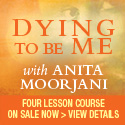The boys were splashing in the shallow end of the pool while I stood ankle-deep on the steps, trying not to get wet. We were at my husband’s company picnic at a fancy yacht club. Glossy white boats bigger than our garage bobbed in the sparkling harbor while the hot, humid day ruined any efforts I’d made with my hair and makeup. I had shooed the boys away from the buffet table where they had been grabbing fistfuls of chips and picking the sprinkles off the cupcakes. I figured there was less chance of embarrassment in the pool.
Wrong.
A rather rotund gentleman who had been swimming slow laps in the deep end made his way toward us and heaved himself up the steps to get out. “That’s a fat man!” said my 3-year-old, clear as a bell. For a minute, time stood still.
“Yup,” said the man in question, then lumbered away. Is it possible to die from shame?
No. It’s not. Too bad, since my sudden death would have nicely diverted everyone’s attention from the matter at hand. Out of the corner of my eye, I could see the smirks of the other parents. Thank God it wasn’t MY kid who said it! they were all no doubt thinking. I leaned down and said quietly to my oblivious son, still splashing happily in the pool, “You don’t say things like that to people. You can hurt their feelings.”
But here’s the thing: he was not wrong. The man was LARGE. And here’s the other thing: he was stating a fact, not making fun of the guy. He’s 3, for Pete’s sake! We all know kids aren’t known for their tact and timing.
This is a tricky parenting situation. For awhile, we tried to sidestep the whole issue, banning the “f” word in our house. (“Fat,” I mean. Not the OTHER f-word!) That didn’t last long. Any children’s books written before the ’80s are rife with words deemed politically incorrect today. Body image didn’t concern Dr. Seuss or Maurice Sendak, I promise you.
We carefully modified our dinner-table talk to emphasize eating well and exercising to be strong and healthy, never mentioning weight or size. But you know what? It’s impossible. From birth on, people’s first comments are about your baby’s size. “Whoa! He’s a bruiser. How much did he weigh?” “Big for his age, isn’t he?” “That one’s going to grow up to be a football player.” “That one’s built like you and the other one takes after his dad, doesn’t he?”
I don’t want to punish or shame my kids for pointing out something that adults do all the time. We just don’t say it to people’s faces. My heart broke yesterday in the store when I overheard a little boy say to his mom, “That man has a funny face!” His mom practically ripped his head off in response, she was so embarrassed. The kid was in tears. Come ON, lady. Overreact much?
A friend of mine handled this situation nicely when her 4-year-old daughter announced that she’d asked her teacher why her belly was still so big even after she’d had her baby. “It’s not nice to talk about how people look, sweetie. Unless you’re saying they have really pretty eyes.”
It’s true. There’s really no need for comments about people’s appearance, is there? You can just as easily describe someone as “the lady in the red shirt” as “the old lady with white hair.” Easier said than done, I know. But I’m working on not saying anything in front of my kids that I wouldn’t want repeated – loudly – by a 3-year-old at the boss’ yacht club.
 Abigail Green is the mom of two small and insanely active boys in Baltimore, Md. A freelance writer for more than 15 years, she has published over 200 articles and essays in magazines, anthologies, and on the web for such places as American Baby, Health, and Smithsonian magazine, as well as “A Cup of Comfort for New Mothers,” Babble.com, and TheBump.com. She is also the author of the e-book Mama Insider: Laughing (And Sometimes Crying) All the Way Through Pregnancy, Birth, and the First 3 Months. She blogs about parenting, publishing, and more at www.AbbyOfftheRecord.com.
Abigail Green is the mom of two small and insanely active boys in Baltimore, Md. A freelance writer for more than 15 years, she has published over 200 articles and essays in magazines, anthologies, and on the web for such places as American Baby, Health, and Smithsonian magazine, as well as “A Cup of Comfort for New Mothers,” Babble.com, and TheBump.com. She is also the author of the e-book Mama Insider: Laughing (And Sometimes Crying) All the Way Through Pregnancy, Birth, and the First 3 Months. She blogs about parenting, publishing, and more at www.AbbyOfftheRecord.com.













I know. We have always worked on not assessing the physical.
It’s very difficult, but after trying for years, you can train your brain.
It’s amazing what a will can do.
Your heart’s in the right place. And children are naturally curious, that’s not wrong. But I work on changing their reaction to one of acceptance.
I think the problem is that when you say “don’t call someone fat” you are reinforcing the idea that fat is bad. You can see it as an opportunity to say something about fat-stigma. It could be as simple as “yes, he is pretty big isn’t he? People come in all kinds of sizes” if you want to go further you can say, “If you call someone fat they might think you’re making fun of them because some people think that it’s bad to be fat, isn’t that silly? People come in all sizes and no one should make fun of anyone right?”
Thank you, Abby. This is a big one for me. I’ve got a five year old and a family history of not knowing how to operate a socially acceptable filter. It’s hard sometimes. Harder still to know what to do without projecting.
I feel your pain. Though my son usually points out the “brown people”. We are working on it.